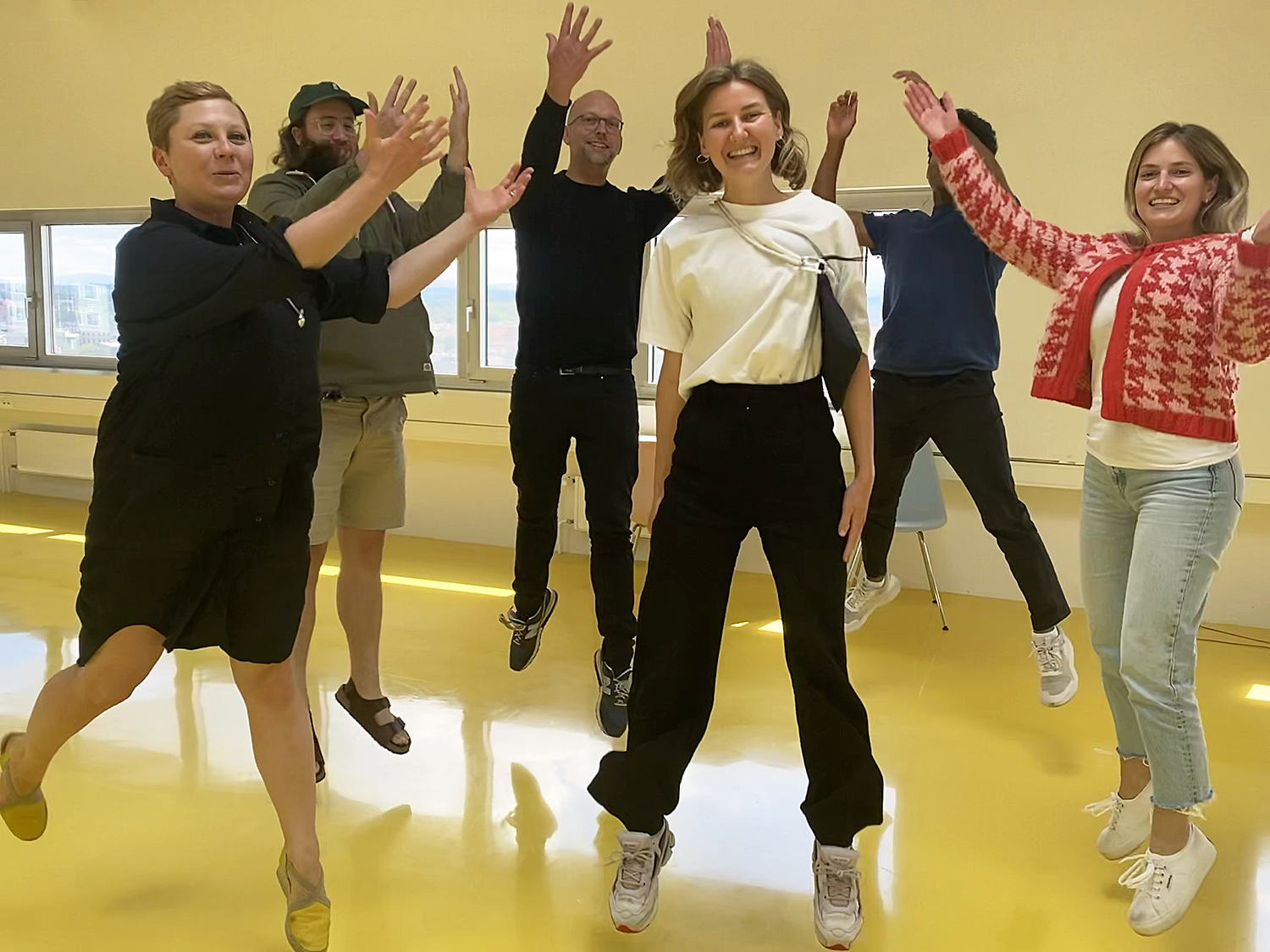Yevheniia Berchul becomes research fellow at the Institute for Sustainable Urbanism Architect from Ukraine investigates the impact of war on the environment
ISU – Institute for Sustainable Urbanism is extremely happy! The Ukrainian architect Yevheniia Berchul will soon be joining the SpACE Lab team at ISU. As part of the special programme for young Ukrainian scientists offered by the Deutsche Bundesstiftung Umwelt (DBU), she has been awarded a fellowship for a research stay at TU Braunschweig.

What a welcome from the ISU team: Yevheniia Berchul will soon be a research fellow in the SpACE Lab. Picture credits: ISU/TU Braunschweig
Yevheniia Berchul is a graduate of the National Academy of Fine Arts and Architecture in Kyiv and the well-known Strelka Institute for Media, Architecture and Design in Moscow. Within the framework of the special program for graduates from Ukraine as part of the CEE Fellowship Program, the DBU supports the further qualification of young Ukrainian scientists.
During her research stay Yevheniia Berchul will participate in different research projects of the SpACE Lab at ISU and develop her PhD project “Environmental degradation of devasted Ukrainian territories”. This focuses on the impact of war in Ukraine on the natural and built environment, as well as opportunities for sustainable reconstruction of Ukrainian war-torn territories.
“I believe this programme offers a unique opportunity to collaborate with a multidisciplinary team at the SpACE Lab”, says Yevheniia Berchul. “The main goal is to look at the current situation of collapsing environment in Ukraine as a result of the war and think about how to use design as a tool for investigative practice and as an instrument to facilitate environmental changes and protection. There are many sophisticated methods for detecting the negative effects on the environment caused by war and other violent conflicts. Therefore, I aim to explore and apply some of them to examine the damage to the environment caused by the military conflict in Ukrainian territories.”
Wide-ranging experience in urban research
Just recently, the architect visited the SpACE Lab to get to know the institute and team, the campus and the city of Braunschweig. Institute Director Prof. Vanessa Miriam Carlow was delighted to receive her and is looking very much forward to welcoming Yevheniia Berchul to her team in September.
“Like many people, I was deeply shaken by the war in Ukraine,” says Professor Vanessa Miriam Carlow. “The CEE fellowship programme created the possibility of concrete support at a time when many of us might want to help substantially, but don’t know how. I would like to thank the DBU very much for this!”
That Yevheniia Berchul will soon be doing research in the SpACE Lab is regarded by the ISU director as an enrichment. “She is a very talented architect. For her project, she has submitted a great exposé. She has a wide range of experience in the field of urban research. The entire ISU team is happy to have Yevheniia join our institute. With Yevheniia, our team will become even more international, smarter and more colourful. This will allow us to benefit even more from the respective experiences and talents of others in our research. Personally, I’m looking forward to learning some Ukrainian vocabulary from Yevheniia, about 27 years after my last Russian exam, in addition to the insights I’ll gain from the joint research work.”
SpACE Lab
The SpACE Lab – Spatial Analytics and Crossdisciplinary Experimentation Lab at ISU – Institute for Sustainable Urbanism, led by Professor Vanessa Miriam Carlow, is a centre of excellence for multidisciplinary urban research that combines architecture, urban design and planning with a variety of other disciplines. With its research, the team aims to promote human-centred, knowledge-based planning and design of sustainable cities and urban regions. It is a founding member of the Leibniz ScienceCampus Postdigital Participation Braunschweig and develops new methods that enable citizens to participate in the design and planning of the city.
